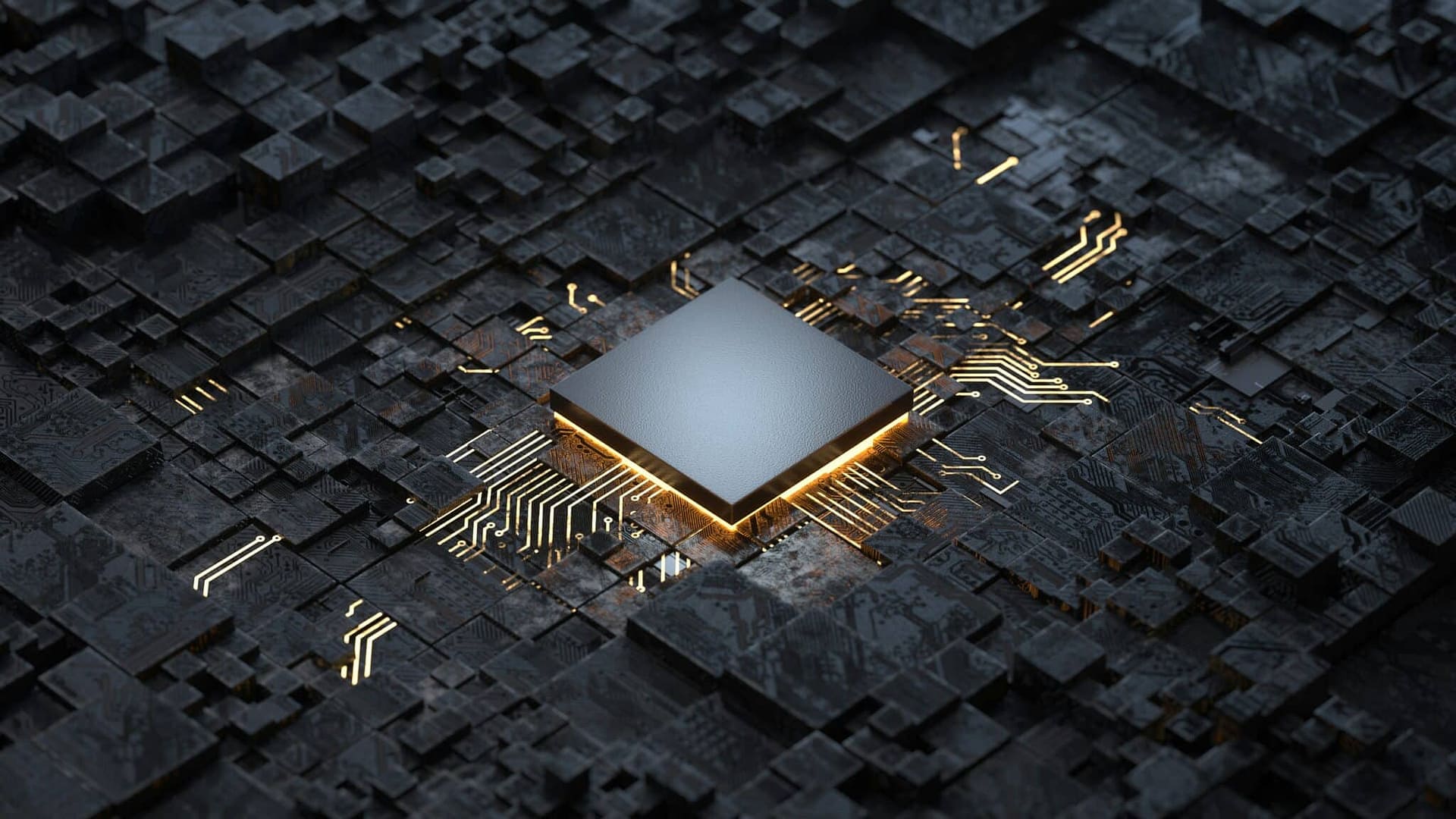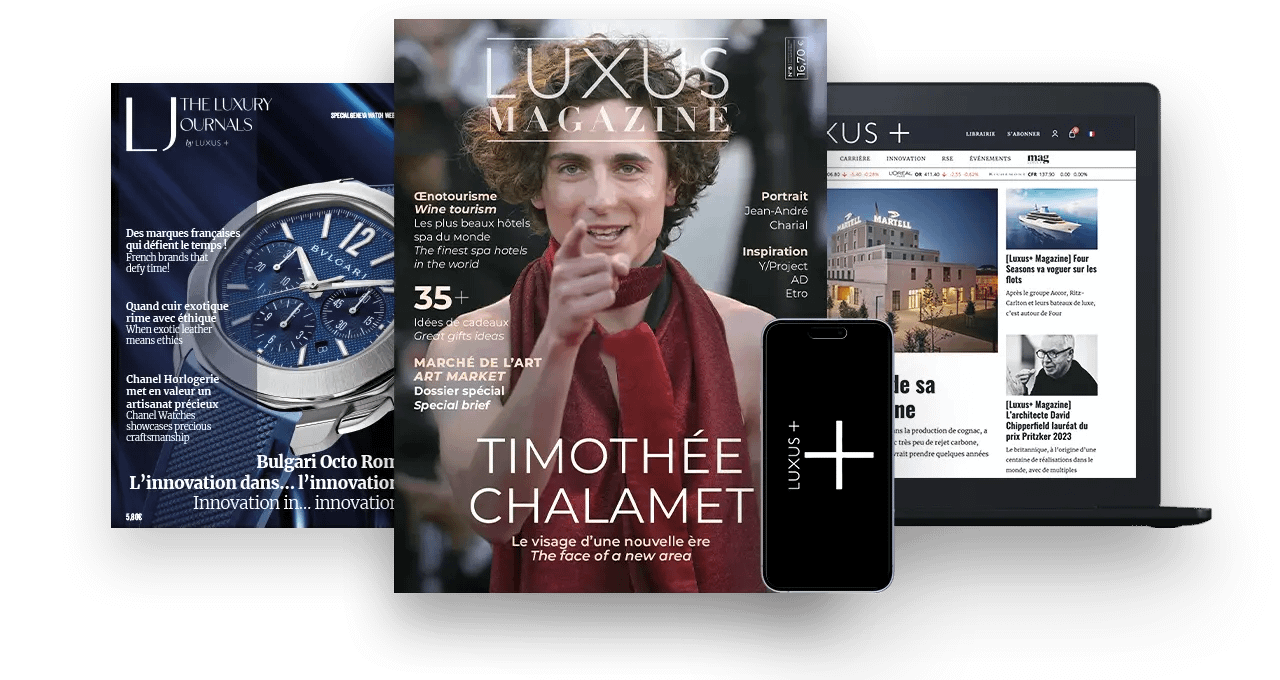Between analytical and generative artificial intelligence, luxury is pursuing its ambition to ultra-personalize its interactions with customers. The latest study by Bain, in partnership with the Comité Colbert, reveals new use cases for technology in the luxury goods industry, and the multiplication of pilot projects in major groups and small independent Houses. The climate of economic uncertainty in which the luxury sector finds itself, and which is likely to continue until at least the end of the year, makes it all the more necessary to redouble our efforts in the development of artificial intelligence.
After the era of emergence and pre-science with the boutique of the future, now comes the era of the convergence of artificial intelligences.
Bain & Co, in collaboration with the Comité Colbert – the representative body of the luxury industry in France – has presented the third opus of its Luxury and Technology study, published annually for the past three years.
Entitled “Artificial intelligence, a discreet revolution”, this new study is based both on a quantitative questionnaire sent to some forty French Maisons, most of them members of the Comité Colbert, and on more qualitative interviews with a handful of them.
The study focuses on luxury businesses that are representative of most of the 95 members of the Comité Colbert: fashion, beauty, watchmaking-jewelry, hotels, tableware… Each of these companies is emblematic of French luxury, a major exporter, and de facto emblematic of global luxury. The study can therefore be read by extension as the breakthrough of artificial intelligence in luxury in general.
Converging forces
The study “Artificial Intelligence, a quiet revolution” by Bain & Co and the Comité Colbert examines for the first time two AI technologies that have been much talked about in recent years, particularly in the luxury sector.
The “doyenne” is none other than analytical artificial intelligence. It involves single-purpose models (optimized for sales forecasting, inventory allocation, etc.) based on structured data, and is a valuable decision-making aid with a scoring objective. Born thirty years ago, it has seen a marked acceleration over the last ten years. The luxury goods industry first became interested in this technology 5 years ago, mainly for operational excellence purposes (logistics, inventory management, etc.).
Generative artificial intelligence, on the other hand, is based on both structured and unstructured data. This AI is capable of rendering any type of data, from text to images to video. It first appeared almost 20 years ago, and accelerated sharply with Google in 2017, whereas it is still in its infancy in the luxury goods sector.
The distinction between the technologies affects not only their nature, but also the human resources they involve. Whereasanalytical AI requires “specialized skills” such as data scientists and engineers to develop models specific to each House, generative AI requires “more commoditized” skills such as those in engineering solutions. While the former suffers from a shortage of talent, with extremely high barriers to entry favoring large groups, the latter is more accessible with pre-existing in-house talent, even within small structures.
“Today, companies and the industry make a clear distinction between analytical AI and generative AI in terms of use cases. However, we anticipate a convergence with self-sustaining technologies and fully integrated applications within the next 3 to 4 years, “ said Mathilde Haemmerlé, Partner at Bain & Company, responsible for the Luxury business in France, and co-author of the study.
Four fields of application for AI
Among the main fields of application for artificial intelligence in luxury, Bain & Co has identified two areas with high adoption rates.
The first is operational efficiency, i.e. everything to do with optimizing the supply chain, from sales forecasts to inventory allocation to the boutique.
The use of AI for greater customer intimacy, the true “Holy Grail” of luxury Houses, is unsurprisingly the other area particularly developed in the luxury sector. Here, technology aims to better know and understand the customer, as well as to further personalize intimacy and dialogue with the latter throughout the various points of contact.
The third, and more recent, use of AI technology is for creative enrichment. In this case, AI does not seek to replace the art director – without whom luxury would no longer exist – but rather to support him or her and accelerate the creative process.
Finally, the augmented team is also an emerging field in luxury (with an adoption rate of less than 5%). The aim is toimprove employee productivity, whatever their function, through tools such as meeting summaries, translation, contract editing…
24 current use cases
Within these four fields of application, Bain & Co and Comité Colbert have identified 24 use cases for artificial intelligence.
Among these, operational efficiency shows the greatest progress, from flow management to quality control and marketing. Then there’s customer contact, whether in-store or on the web, whether through direct or intermediated (chatbots, etc.) clienteling actions and other customer recommendations; augmented teams, i.e. everything to do with training and recruitment; and finally the creative function, upstream to ensure trend forecasting and downstream to speed up prototype visualization.
While the use of AI is well underway, none of the 24 use cases has been adopted by more than 30% of luxury brands.
The context of standardization in the luxury sector unsurprisingly favors operations related to sales volume prediction and stock allocation (10% adoption rate). This is first and foremost a response to cost constraints linked to transport and unsold goods , but also to the need to comply with increasingly strict and pressing environmental regulations to avoid destroying stock.
Joëlle de Montgolfier, Global Director of Retail, Consumer & Luxury Goods Research at Bain & Company, and co-author of the study, agrees: “Operational efficiency is clearly the number one battle-horse for brands. The slowdown in the sector’s growth is forcing luxury companies to be much more attentive to the use of their resources, and thus avoid unsold goods, overstocking or even wasted materials.”
Understanding the customer is also a key focus for luxury brands, with an adoption rate of 25%. Here we find the need for personalized interaction and communication between the sales advisor and the customer.
Strong acceleration in sight
“Digital transformation through AI consists of shorter and shorter cycles, and we expect a massive acceleration in its adoption. Today, luxury brands have adopted an average of 1.6 use cases out of the 20 or so detected, while they have 5.4 additional use cases, either in pilot or planned,” explains Mathilde Haemmerlé.
She adds , “ over a 12-24 month horizon, we anticipate, on a conservative assumption, that two-thirds of the twenty or so use cases tested could land in the ‘established’ category, i.e. adopted by 30% of the Houses. ”
Another finding is that the gap between the major groups and the small independent Houses is narrowing. While today, large groups have an adoption rate three times higher than small structures (client deployment, analytics, inventory…), SMEs are catching up, if we look at their number of experiments, particularly in generative AI.
Finally, while the question of legitimacy and the benefits of AI are no longer obstacles, there are still two major barriers to entry.
Lack of expertise is seen as the main obstacle to AI development by luxury companies (60% for analytical AI and 50% for generative AI). Security and compliance come second (30% analytical AI and 27% generative AI), followed by technological exploitability (27% and 13%).
As for the future of AI adoption, Bain & Co notes an expansion of the technology’s scope of application to areas hitherto of lower priority, such as after-sales service or technology in the hands of the customer (live recommendation, website personalization, chatbots…). 25% of our customers are currently testing these applications. Knowledge management with chatGPTs branded by the Houses themselves represents the top of the experimentation pile.
Art direction, a real preserve, is also being tested bya third of luxury brands. But there’s no question of replacing the human hand.
For Bénédicte Epinay, general delegate of the Comité Colbert, “by combining tradition and innovation, refinement and technology, the authentic and the artificial, the meeting of luxury and artificial intelligence opens the way to fascinating new possibilities, where artisanal excellence meets the digital avant-garde for a discreet revolution.”
Joëlle de Montgolfier concludes, “If luxury brands choose to make artificial intelligence one of their strategic priorities, they will have to be careful to put in place the conditions required for their strategy to be truly value-creating, namely modernizing their technological infrastructures, enriching their unstructured data management skills and supporting their teams to ensure acceptance and appropriation of AI tools.”
Read also > Artificial Intelligence: priorities, myths, and realities in the Luxury industry
Featured Photo: © Getty Images/Unsplash+





































